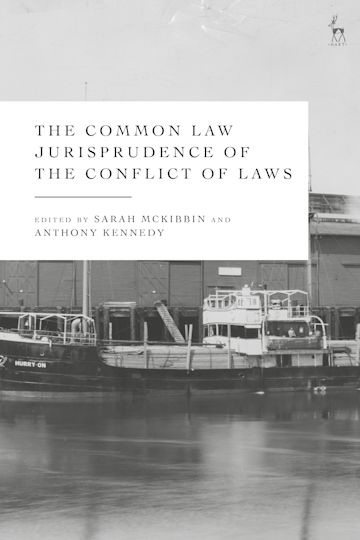Views
Proving Chinese Law: Deference to the Submissions from Chinese Government?
Written by Dr. Jie (Jeanne) Huang, Senior Lecturer, University of New South Wales Faculty of Law
The recent U.S. Supreme Court case, Animal Science Products, Inc. v. Hebei Welcome Pharmaceutical Co. Ltd, concerns what weight should be given to the Chinese government’s submission of Chinese law. On Page 58 of the trial transcript, Justices Kagan and Ginsburg asked how about other countries dealing with formal submissions from the Chinese government. There are two examples.
One is Hong Kong. In TNB Fuel Services SDN BHD v China National Coal Group Corporation ([2017] HKCFI 1016), the issue is whether the defendant, a state-owned enterprise, is protected by Chinese absolute sovereignty immunity under Chinese law. The court deferred to an official letter provided by the Hong Kong and Macao Affairs Office of the State Department in Mainland China. The Office answers no absolute sovereignty immunity to Chinese state-owned enterprises carrying out commercial activities. The Court adopted this opinion without second inquiry (para 14 of the judgment). After considering a bunch of other factors, the court ruled against the defendant.
The other is Singapore. In Sanum v. Laos ([2016] SGCA 57), the issue is whether the China-Laos Bilateral Investment Treaty (BIT) shall be applied to Macao Special Administrative Region. Chinese embassy in Laos and China Ministry of Foreign Affairs provided diplomatic announcements indicating that the BIT shall not be applied to Macao. However, the Court of Appeal of Singapore held that China’s announcements were inadmissible and, even if admitted, they did not change the applicability of the BIT to Macau. This is partly because, before the dispute with Sanum crystalized, no evidence showed that China and Laos had agreed that the BIT should not be applied to Macau. Therefore, the China’s diplomatic announcements should not be retroactively applied to a previous dispute. For a more detailed discussion, please see pages 16-20 of my article.
TNB Fuel Services and Sanum share important similarities with Animal Science Products, because the key issues are all about the proving of Chinese law. In the three cases, Chinese government all provided formal submissions to explain the meaning and the applicability of Chinese law. However, TNB Fuel Services and Sanum can also be distinguished from Animal Science Products, because comity plays no role in the former two cases. TNB Fuel Services concerns sovereign immunity, which is an issue that Hong Kong courts must follow China’s practices. This is established by Democratic Republic of the Congo v. FG Hemisphere Associates (FACV Nos. 5, 6 & 7 of 2010). Sanum is a case to set aside an investment arbitration award, so the Court of Appeal of Singapore need not consider comity between Singapore and China. In contrast, in Animal Science Products, the U.S. Court of Appeals for the Second Circuit elaborated the importance of comity between the U.S. and China. Therefore, Animal Science Products should not be considered as a technical case of proving foreign laws. The U.S. Supreme Court may consider deferring to the submissions of Chinese government to a certain extent but allows judges to decide whether the Chinese government’s submission is temporally consistent with its position on the relevant issue of Chinese law.
Who Owns France.com?

France is a state. France.com, by contrast, is a domain name, and it was, until recently, owned not by the French state but instead by a Californian company, France.com, Inc. That conflict is now being litigated in a fascinating dispute reminiscent of the early days of the internet.
In those early days, in 1994 to be precise, a French-born individual living in the United States, Jean-Noël Frydman, registered the domain name France.com. The domain name is now held by a Californian company, France.com Inc, which Frydman set up. The website, at first dedicated to general information for Francophiles around the world, was later expanded to operate as a travel site. But France.com, Inc, did not, it appears, own trademarks in Europe. This enabled a Dutch company, Traveland Resorts, to register French and European word and graphic marks for France.com in 2010. In 2014, France.com, Inc brought suit in France against Traveland for fraudulent filings of trademarks and achieved a settlement under which Traveland transferred the trademarks.
But that was a Pyrrhic victory. The French state and its own travel development agency, Atout, intervened in the litigation, claiming the trademarks for itself instead. Atout had been running, since 2010, its own information site, france.fr. French state and Atout were successful, first before the Tribunal de Grande Instance, Paris , and then, partly, on appeal before the Cour’ d’appel de Paris (English translation, note by Alison Bouakel) As a consequence, web.com transferred the domain in 2018. Now, France.com immediately directs to France.fr.
So far, the conflict is mostly a French affair. But Frydman is taking the litigation to the United States. France.com, Inc has brought suit in Federal Court in Virginia against the French State, Atout, and against Verisign, the authoritative domain registry of all .com addresses. The suit alleges cybersquatting, reverse domain hijacking, expropriating, trademark infringement, and federal unfair competition. US courts and WIPO panels have so far not looked favorably at foreign government’s claims for their own .com domain name; examples include PuertoRico.com, NewZealand.com, and Barcelona.com. Will the French State be more successful, given the French judgment in its favor?
Although neither the French courts nor the complaint in the United States address conflict of laws issues, the case is, of course, full of those. Are the French state and its travel agency protected by sovereign immunity? The Foreign Sovereign Immunities Act contains an exception for commercial activities and is limited to sovereign acts: Does ownership of a domain name constitute commercial activity? Surely, many of the activities of Atout do. Or is it linked to sovereignty? After all, France is the name of the country (though not, ironically, the official name.) The U.S. Court of Appeal for the Second Circuit left the question open in 2002 (Virtual Countries, Inc. v. South Africa, 300 F.3d 230).
Must the federal court recognize the French judgment? That question is reminiscent of the Yahoo litigation. Then, a French court ordered that Yahoo.com could not offer Nazi paraphernalia on its auction website. Yahoo brought a declaratory action in federal court against recognizability of the judgment in the United States. The affair created a lively debate on the limits of territorial reach in internet-related litigation, a debate that is still not fully resolved.
Relatedly, did the French state engage in illegal expropriation without compensation? Such acts of expropriation are in principle limited to the territory of the acting state, which could mean that the French state’s actions, if so qualified, would be without legal effect in the United States.
To what extent is US law applicable to a French trademark? By contrast, to what extent can the French trademark determine ownership of the domain? Trademarks are a perennially difficult topic in private international law, given their territorial limitations; they conflict in particular with the ubiquity of the internet.
Is the top level domain name – .com, as opposed to .fr – a relevant connecting factor in any of these matters? That was once considered a promising tool. But even if .fr could in some way link to France as owner, it is not clear that .com links to the United States, given that it has long been, effectively, a global top level domain. On the other hand, most governments do not own their own .com domain. And US courts have, in other cases (most famously concerning barcelona.com) not doubted applicability of US law.
A timeline with links to documents can be found at Frydman’s blog site.
The Supreme Court deals the death blow to US Human Rights Litigation
Written by Bastian Brunk, research assistant and doctoral student at the Institute for Comparative and Private International Law at the University of Freiburg (Germany)
On April 24, the Supreme Court of the United States released its decision in Jesner v Arab Bank (available here; see also the pre-decision analysis by Hannah Dittmers linked here and first thoughts after the decision of Amy Howe here) and, in a 5:4 majority vote, shut the door that it had left ajar in its Kiobel decision. Both cases are concerned with the question whether private corporations may be sued under the Alien Tort Statute (ATS). Read more
News
AMEDIP’s upcoming webinar: The Applicable Law to Investment Arbitration and the Future Guide of the Organization of American States – 31 August 2023 (at 14:30 Mexico City time) (in Spanish)

The Mexican Academy of Private International and Comparative Law (AMEDIP) is holding a webinar on Thursday 31 August 2023 at 14:30 (Mexico City time – CST), 22:30 (CEST time). The topic of the webinar is the Applicable Law to Investment Arbitration and the Future Guide of the Organization of American States (OAS) and will be presented by Dr. José Antonio Moreno Rodríguez (in Spanish).
The details of the webinar are:
Inter-American Juridical Committee (CJI) of the OAS adopts Guide to Best Practices in International Jurisdictional Cooperation for the Americas
Earlier this month, the Inter-American Juridical Committee of the Organization of American States (OAS) adopted a Guide to Best Practices in International Jurisdictional Cooperation for the Americas. It is available here (in English) and here (in Spanish).
See in particular questions 5 and 7, which relate to electronic service and videoconferencing (pp. 18 and 26). The actual Guide begins on page 38.
Out Now: The Common Law Jurisprudence of the Conflict of Laws
Few books can get you from the rainy coast of Newfoundland over 19th-century Holstein straight to sunny Queensland and back to the North of Pennsylvania, while telling stories of a retired MI5 agent, the largest Ponzi scheme in history, a company founded by the 41st President of the United States, the aftermath of the First Gulf War, and the collapse of the Federal Bank of Australia. The volume on The Common Law Jurisprudence of the Conflict of Laws, edited by Sarah McKibbin (University of Southern Queensland) and Anthony Kennedy (Serle Court), recently published by Hart, does just that, by discussing cases like Vita Food Products, Brook v Brook, Bonython v Commonwealth of Australia, AG v Heinemann Publishers (better known as the Australian Spycatcher case), Bremen v Zapata, Vizcaya v Picard, and Kuwait Airways (Nos 4 and 5).



